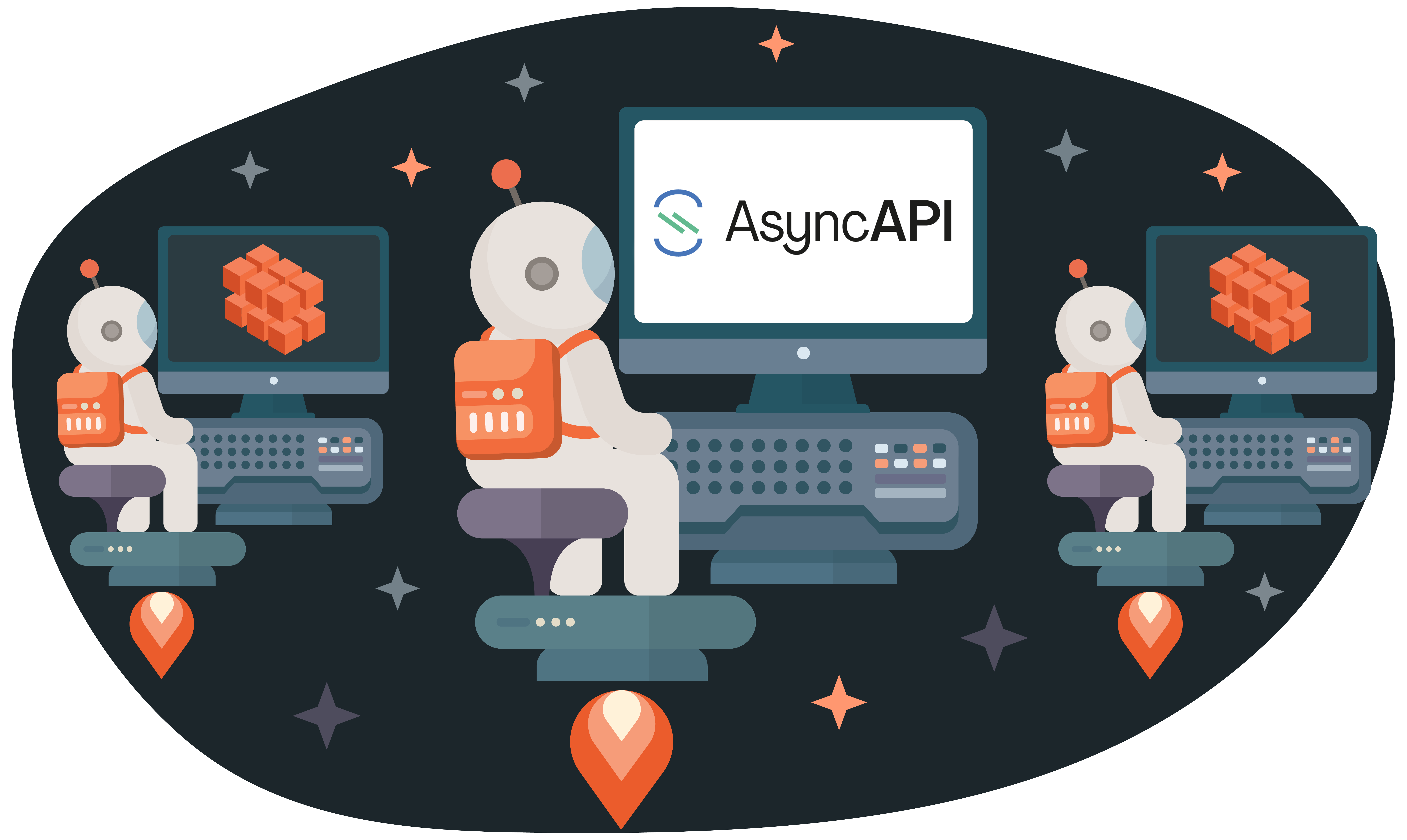AsyncAPI Joins Forces with Postman to Define the Future of APIs
I’ve been following the amazing community adoption of AsyncAPI for a while and was lucky enough to meet Fran Méndez, the founder of AsyncAPI, earlier this year. We soon began talking about the future of APIs; after a few conversations, it became clear that AsyncAPI and Postman could do a lot together at some point.
That day is now here.
Building upon Postman’s joining the OpenAPI Initiative (OAI) this last July, Postman is now partnering with AsyncAPI—an initiative for standardizing message-driven APIs—to help ensure that AsyncAPI has the resources it needs to continue growing its team, evolve the AsyncAPI specification, and develop the open source tooling around its specification that the API community needs to deliver the next generation of APIs. Nothing will change for the AsyncAPI team, specification, and open source tooling, but now they will have the power of the entire Postman community behind them. And Postman will now have the AsyncAPI expertise needed to ensure our API Platform continues to support the delivery and consumption of a diverse range of APIs, patterns, and protocols.
Shortly after the OpenAPI Specification—the leading standard for describing HTTP request and response APIs—was put into the Linux Foundation in 2015, AsyncAPI was created to describe TCP, MQTT, AMQP, and next-generation APIs that don’t use HTTP. AsyncAPI is a “sister” specification to OpenAPI: it uses the same base syntax to describe information for an API and adopt JSON schema for modeling the objects published and subscribed. Over the last of couple years, OpenAPI has played a central role in the design and development of REST APIs on the Postman platform, so adopting AsyncAPI to further support the future of API development on the Postman platform made a lot of sense to us. REST, SOAP, and GraphQL aren’t going anywhere, but event-driven and message-driven APIs via TCP, MQTT, and other protocols are emerging to complement them and round off the API development toolbox for any organization. Postman is also working on adding support for asynchronous APIs to the platform, as that has been one of the biggest feature requests from our community.
AsyncAPI maintainers Fran Méndez and Lukasz Gornicki are joining forces with Postman to support the growing needs of the AsyncAPI community. The AsyncAPI team will work to put the specification into a foundation in the first quarter of 2021, helping make sure the governance of the specification remains open and reflects the needs of the community, while also supporting the parsers, validators, documentation and code generators, and other open source tooling that developers increasingly depend on. Now with this Postman partnership, AsyncAPI can meet its goals and continue to help define the future of APIs.
To learn more about AsyncAPI, head over to asyncapi.com and see what the team is working on. And don’t forget to check out the AsyncAPI GitHub repository for the specification. Fran and Lukasz are working on some pretty cool solutions around the specification, the AsyncAPI playground, and some other exciting new projects. If you have any questions or ideas about AsyncAPI, multiple protocols, or Postman, send us feedback through the Postman Community forum and GitHub repository—we’d love to hear about your own event-driven and message-driven API visions for the Postman platform.

Is Postman will support MQTT Client in the future? (as MQTT.fx, …)